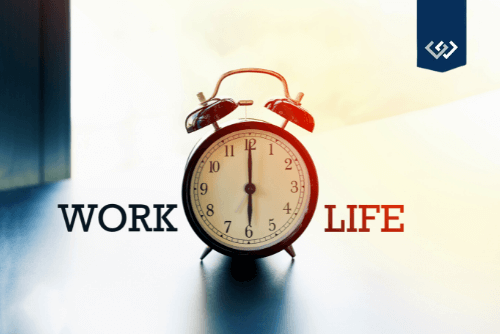“Never get so busy making a living that you forget to make a life.” – Dolly Parton
Now, more than ever, it’s important to redefine work-life balance. This past September alone, 4.4 million people voluntarily left their jobs. Often referred to as “The Great Resignation”, many Americans are quitting due to issues such as job dissatisfaction, the prospect of having to end remote work, and health concerns.
Chronic stress is among one of the most common workplace health issues. According to the American Psychological Association, chronic stress can lead to high blood pressure, insomnia, and a weakened immune system. Its presence in the workplace causes many people to burn out, stifling innovation, creativity, and productivity. Here are some steps you can take to improve the way your job and your life fit together.
Improve Workplace Communication
Honest, direct communication is essential for maintaining a good work-life balance. If you’re feeling stressed or overwhelmed, share those feelings with a trusted colleague or mentor. If you need time to rest and recharge, ask for it. Perhaps you aren’t feeling motivated or very fulfilled. See if there’s a webinar, course, or professional meet-up that could inspire you and help you grow. You’ll never know unless you start asking yourself what you need and making that known at work.
When it comes to asking for help, we know it’s much easier said than done. Whether it’s asking for assistance on a project, learning about something new, or asking for time off, asking for help shows vulnerability. But as best-selling author and researcher Brené Brown says, “Vulnerability is the birthplace of innovation, creativity, trust, and empathy.” Things won’t change unless you take that first step in asking for help, even in the smallest ways.
Work-Life Boundaries
21st-century technology keeps all of us connected, even to our jobs. Social media, email, smartphones, and Zoom have contributed to a culture of constant accessibility. It has, unfortunately, led to the idea that we all need to be available 24/7. To reduce stress and create balance, draw stricter boundaries between work and home life.
As long as we have our phones on, we’ll be in a constant state of being “on”. Work may feel more urgent than it is and that urgency can pull us away figuratively or literally. Additionally, the pandemic has significantly blurred the lines between work and life, so setting rules for yourself can be even more difficult.
Schedule time for exercise, hobbies, and social activities to help balance out your days, weeks, and months. Block out an hour for a weekly lunch date with a friend or commit to a 30-minute walk time every day and stick to it like you would any meeting with a colleague or client. Invest in yourself the same way you invest in others. Learn to say no on a regular basis to show what’s most important to you. On her talk show, Oprah Winfrey once said, “You have to be able to set boundaries, otherwise, the rest of the world is telling you who you are and what you should be doing.”
Daily Breaks
Taking breaks is just as important as drawing boundaries. Many states have laws that require employees to take breaks. Washington state, in particular, requires employees to take a 10-minute break for every 4 hours worked. We know for many, it can be challenging to carve out time to take breaks between meetings and tasks. But putting a time block on your calendar and setting an alarm can help.
When you take a break, try to actually unplug. Step away from all screens. Turn off your phone if you can so that no devices distract you. Be fully present by doing some stretches, stepping outside, or eating a meal away from all devices.
Taking a break can actually boost your productivity. According to Scientific American, “Downtime replenishes the brain’s stores of attention and motivation, encourages productivity and creativity, and is essential to both achieve our highest levels of performance and simply form stable memories in everyday life.”
Prioritize Your Health
As Michelle Obama says, “We need to do a better job of putting ourselves first on our own to-do list.” Although the idea of productivity and financial success can be intoxicating, without prioritizing your health, you will burn out. Assess your physical, mental, and emotional health and make sure you develop steps to address any issues you identify.
Many of us get caught up in saying we’re fine without really taking time to think about how we’re actually feeling mentally, emotionally, and physically. Pick one area of your life that you want to improve. Come up with one small step you can take today that moves you even the tiniest bit toward the change you’d like to see, and then take action. Soon you’ll be feeling better and that improvement will impact your professional and personal life.
More Than Your Job
Humans are not one-dimensional beings. You are more than your job. Whether you succeed or fail at work doesn’t define your worth as a person. Our obsession with perfectionism can hold us back from making progress. Overextending yourself professionally in pursuit of perfectionism can lead you to take work issues more personally, and can leave you feeling emotionally drained outside of work.
This might surprise workaholics but a life outside of work can actually help you become more successful and productive both personally and professionally. Spending time with loved ones, traveling, and learning something new can generate new perspectives and ideas.
Ultimately, if we work to dismantle old behaviors, draw stricter boundaries, and prioritize ourselves, we will live a fuller, more balanced life.
 Facebook
Facebook
 X
X
 Pinterest
Pinterest
 Copy Link
Copy Link
